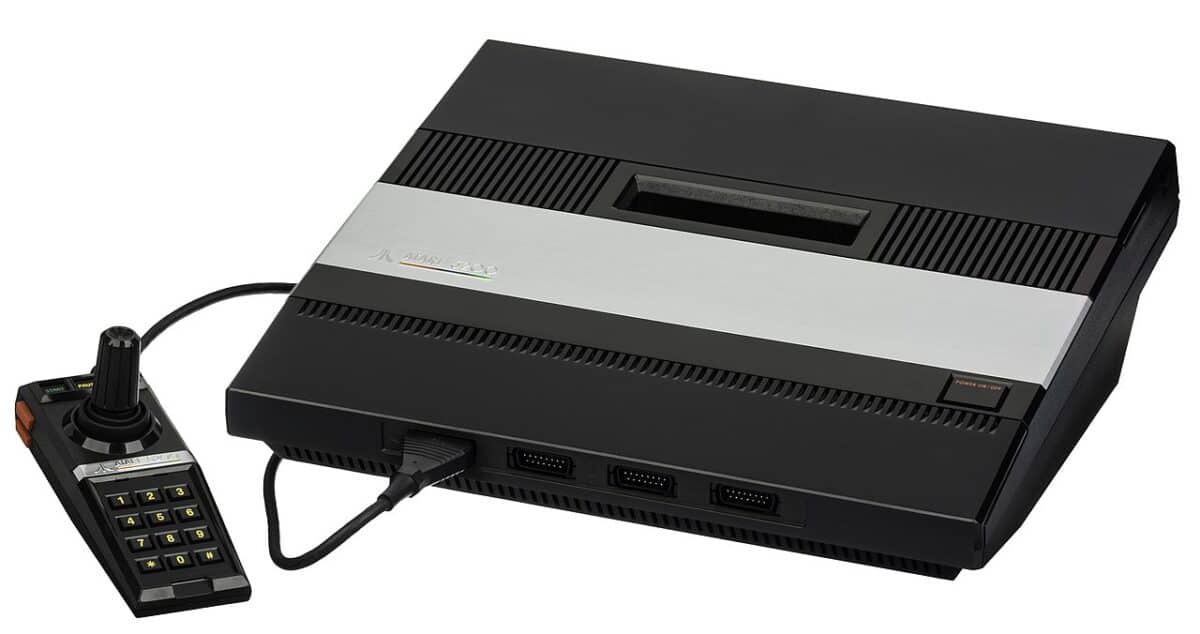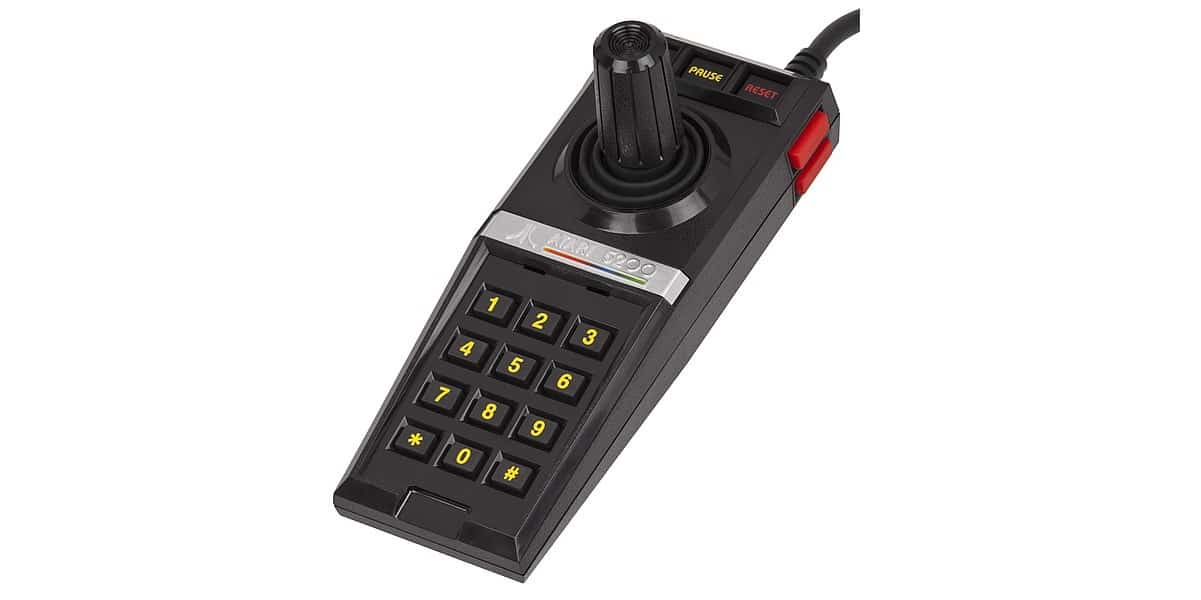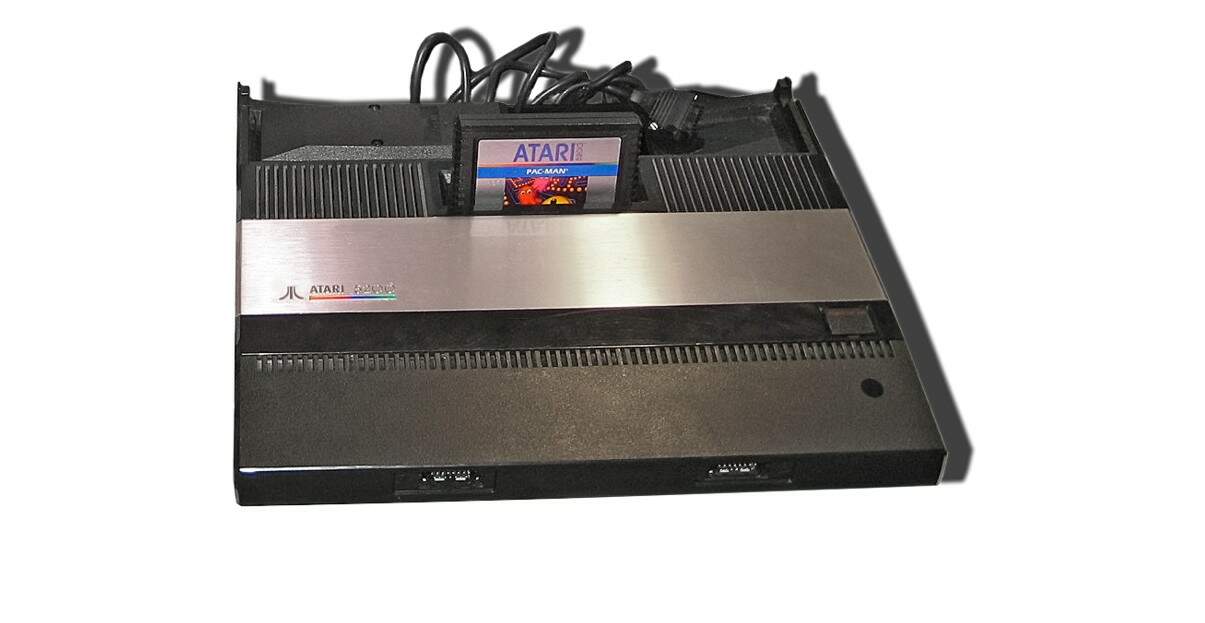The console wars have been going on for some time. Today, Xbox and PlayStation are duking it out for supremacy. Before that, Nintendo and Sega were locked in bitter conflict for the top spot. But even before the NES and SG-1000 hit store shelves, a quieter console war raged for years. In this article, we deep dive into Atari 5200 failure.
Atari dominated the gaming landscape in the 1970s and 80s. They had practically created the gaming market with the creation of the game pong. In 1977, Atari released its first home console, the Atari Video Computer System. But as the system aged and the competition grew, Atari needed a new console to wow fans.
Quick Facts
- Release Date
- 01/11/1982
- Original price
- $269.99
- Discontinued
- 01/05/1984
- Units Sold
- 1 million
That console was the Atari 5200, and it was a mess! The console is critically panned as one of the worst (if not THE worst) consoles of all time. So, how did this happen? How did Atari, at the height of its powers, create something that would evoke bad memories?
10 Facts about the Atari 5200
- Atari abandoned the original design in 1979 in favor of the Atari 8-bit series
- What would become the Atari 5200 was based on an older prototype
- The Atari 5200 wasn’t compatible with the 8-Bit series or 2600 games at launch
- The console has one of the smallest game libraries of all time
- The 5200 controller was universally despised by fans
- The 5200 was easily the most expensive console on the market at the time
- Sales for the 5200 stagnated quickly after the launch
- Atari retroactively renamed the Video Computer System to the Atari 2600 to align with the 5200 branding
- The launch title, Super Breakout, was seen as very weak
- The 5200 was discontinued in 1984, only two years after its release
Atari 5200 Specs

The technology was built off an old prototype that Atari had abandoned in 1979. They used this prototype because they wanted some new in 1980 to compete with Mattel’s Intellivision. Still, the older prototype had been lightyears ahead of competing technologies. This meant it was up-to-date with current standards, and Atari believed they could release it quickly. They were wrong but more on that later.
The 5200 was a powerhouse at the time. It had a custom MOS 6502C that ran at 1.79 MHz with 16 KB of RAM. It also had the same ANTIC and GTIA chips as the 8-bit home computers. The sound was also very good for the time with the 4-channel POKEY chip.
Looking back, the 5200 was kind of a beast for 1982. It had tons of power, beautiful graphics, and unbeatable sound. The console was technically unassailable, which made its ultimate failure much more interesting. It wasn’t the specs that made the console fall flat, but a series of poor decisions.
Atari 5200: Where to buy
The system was discontinued in 1984 but is still a popular collector’s item. Due to limited sales and its general infamy, the Atari 5200 is a valuable item for those willing to pay.
Because of its collectible status, the price depends on the condition. There are also two versions, the 4-port original launch and the 2-port relaunch. The 4-port was only made in limited quantities, which is very valuable. We were able to find one on eBay for $599.99. The seller claims it is in mint condition and was seldom used.
The cheapest we found was $34.33, also in the box and packaged with Pac-Man. As with any collectibles, it’s a good habit to do due diligence before buying an item.
The History of Atari 5200: What to know
The Lead up to the Atari 5200
In the 1970s, Atari was the premier name in video games. The Atari Video Computer System was a smash hit and has a place in the pantheon of gaming consoles. The 2600 climbed to the top of the gaming market, but they needed to keep innovating if they were going to stay there.
For the follow-up, Atari wanted to create something that would blow fans away. They began working on a prototype for the next Video Computer System. At the same time, the home computer market was exploding, this era saw things like the Apple 2 and later the Commodore 64. Atari wanted to break into that space.
To do this, they retooled their console prototype into a Home Computer product. In 1979, Atari released the Atari 400/800 series of home computers, often called the 8-bit series. They were an instant hit with consumers and a plus on Atari’s already shining reputation.
Development
Mattel released the Intellivision home console in 1980, quickly becoming a hit with gamers. Not to be outdone, Atari decided to dust off the old prototype for the VCS follow-up and create a console to compete with Mattel. Previously, the company used the prototype to develop the popular 8-bit series. Atari thought they could just retool it and get it out that year. The console wasn’t released until 1982.
Atari 5200 Launch
The launch of the 5200 was not met with much fanfare. The system was technically impressive but was missing some key features, an exciting launch title, and the library support it needed.
It wasn’t just one thing that made the Atari 5200 fall flat, it was a list of things from poor business decisions to bad design to the crash of 1983. Not all these things were Atari’s fault, but they all led to the console’s downfall.
Bad Controller

This is probably the biggest criticism of the Atari 5200 and a valid one too. The controller was designed like the Intellivision controller, typical of most controllers then.
The controller itself wasn’t out of the ordinary, and the trigger buttons had a solid return. More than anything, it was the joystick that frustrated players. This is because the joystick was non-centering, meaning it would get stuck in different positions.
On modern controllers, if you push a stick in one direction and then let it go, it will reset to the center. Not on the 5200 controllers. This led to frustrating gameplay experiences.
The controller was also cheaply made, which didn’t help things. Like the 5200 consoles, the controller was technically advanced. To keep the price reasonable, Atari designed it with cheap plastic that was easily broken.
The Atari 5200 controller is a mainstay on “the worst controllers of all time” lists across the internet. But it wasn’t the only problem with the system.
Lack of Compatibility
The Atari 5200 was not backward compatible with the 2600 at a time when that wasn’t done. Today, backward compatibility varies from system to system but back then, it was all but a given. Atari not including this feature was a major pain to fans of the 2600’s game library.
It was exacerbated by competing consoles. Intellivision and Colecovision introduced add-ons allowing players to play 2600 games. It was a huge embarrassment for Atari and impacted sales greatly.
Not only that but the Atari 2600 still had a massive install base. It was cheaper, easier, and more profitable not to make games for the 5200. Yikes!
Even more crazy is the lack of compatibility with 8-bit games. This floored fans, as the Atari 400/800 home computers and Atari 5200 consoles were contemporary systems. The reason for this difference in compatibility is as petty as it is stupid.
The home computer and console divisions at Atari were independent of one another. So, each saw the other as competition. They deliberately made their games incompatible just to spite the other.
Porting the games was possible and relatively simple but could get expensive. That is why the Atari 5200 has one of the smallest game libraries of any console, at only 69 games. This was even more insulting to fans due to the incredibly high price tag on the console.
Price
The Atari 5200 was prohibitively expensive to many gamers. At launch, it was priced at $269.99. Adjusted for inflation, that is $879.68 in today’s money. The next most expensive system was the ColecoVision at $179, and the original Atari was $79 for more games and a better controller.
If the Atari 5200 had delivered a better controller, more compatibility, and upgradability, it might have been worth the price. It was better technologically than anything on the market. But time and time again, gamers have proven that technical specs aren’t everything. For a console to work, it must have the full package of great games, good design, and next-gen features.
Atari 5200 Versions: Each Edition
Atari 5200 4-Port Console
This was the version originally released in 1982 for $269.99. It was big even by today’s standards, but most of that was the plastic storage compartment above the cartridge drive. It was built very close in spec to the 8-bit series with some of the same components.
Unlike many consoles at the time, the Atari 5200 had very little room for upgradability. Colecovision had an add-on that would turn it into a home computer, the 5200 had no such feature. This is probably due to the 400/800 series and Atari management not wanting too much cross-over, but it still made a bad impression on some enthusiasts.
The biggest difference between this console and the later release was the 4 controller ports. These ports were only compatible with the 5200 controllers, another point of contention for fans.
Atari 5200 2-Port Console
The Atari released a 2-port version of the 5200. This version was technically identical to the original release except for the 2-ports and a built-in AC adaptor port. Another big release at this time was an expansion add-on that allowed the 5200 to play 2600 games. Naturally, it was sold separately.
While this was a step in the right direction for gamers, it didn’t drive sales. By then, people had lost interest in the 5200, not to mention Intellivision and ColecoVision had been offering an add-on like this for over a year.
The public response
It’s safe to say that fans were not pleased with the offering by Atari. The console was met with such a muted response that it was discontinued only 2 years after release. Many fans felt cheated by the lack of games, the cheap crumby controller, and the exorbitant price of the console.
This is a prime example of boneheaded corporate decision-making. The feud between the different divisions, the slapped-together design, and the poor controller are all things that could have been avoided. Making a great product takes time and care. In the case of the 5200, it seems like an afterthought of the 8-bit series, and gamers deserved better than that.
The image featured at the top of this post is ©Daniel McConnell (TrojanDan), CC BY-SA 2.0

